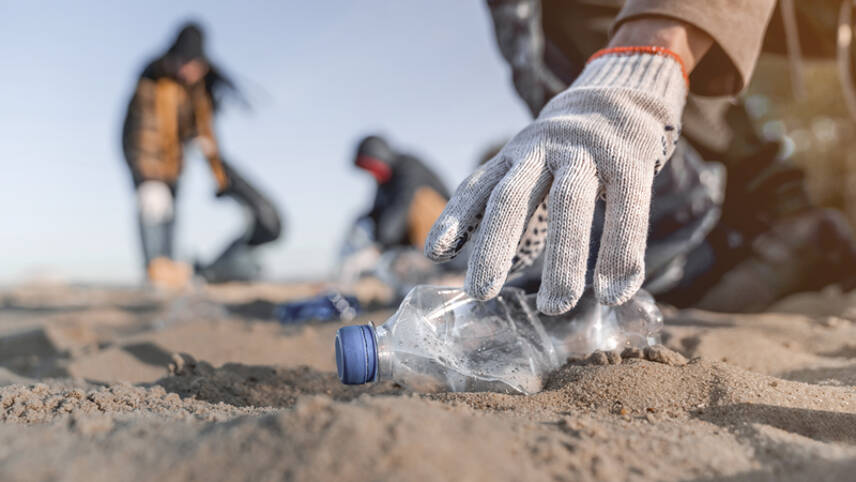Register for free and continue reading
Join our growing army of changemakers and get unlimited access to our premium content

Stock image
The Alliance to End Plastic Waste was founded in 2019 and states that its aim is to develop the infrastructure and innovation needed to end plastic waste. It also focuses on education, engagement and plastic ‘cleanup’ schemes.
Throughout its short history, the Alliance has proven controversial for its willingness to work with large single-use plastics producers, including those with plans to expand production capacity. Its 65+-strong member base also includes chemicals and fossil fuel companies often the subject of scrutiny by climate groups, including ExxonMobil, Shell, Dow, Sabic and BASF.
Now, think-tank Planet Tracker has published a new scathing analysis of the Alliance’s actions and impact overall, arguing that it is deploying “sophisticated” forms of greenwashing while hindering policy progress on plastics. The report calls the Alliance’s approach “barely credible”.
As many other groups have done already, the report questions why the Alliance is accepting membership from big single-use plastic producers and companies with poor records on climate without stricter criteria.
The report goes on to allege that many Alliance members are not delivering on the initiative’s commitments as they publicly claim they are. It states that members have collectively achieved less than half a percent of its recycling targets set for 2025. It also argues that the Alliance was wrong not to update its target to tackle plastic waste as its membership grows, meaning that each participant is now responsible for 56% less waste than the founding members will have been in 2019.
A spokesperson for the Alliance highlighted that there were “initial delays” to some of its recycling activities and investments due to the Covid-19 pandemic. She added that the Alliance will continue to prioritize improvements in waste management systems, especially for the three billion people currently without access, but failed to clarify how members will be made to pick up the pace.
Policy engagement and global treaty
As the report continues, Alliance members are accused of hypocrisy for publicly stating a commitment to help tackle the plastic pollution problem, then quietly lobbying for policies which delay progress on the issue.
Planet Tracker states that more than two-thirds of the initiative’s founding members are members of the American Chemistry Council. This trade body has been actively campaigning against a US-wide tax on plastics and similar state-specific schemes. Council and Alliance members include BASF, Braskem, Chevron Phillips Chemical, Covestro, Dow and Honeywell.
The Council’s website dedicates much space to arguing that plastics are a more sustainable alternative than other materials in packaging and automotive and that the plastics sector is reducing its environmental impacts through efficiency improvements and recycling investments. It advocates against any measures that would cap or otherwise reduce the initial production of polymers.
As such, the Council supported nations including Japan and the US in a proposal for the UN’s Global Plastic Treaty that would not cover the whole life-cycle of plastics in terms of material impact, focusing instead only on use and end-of-life. This proposal was ultimately not chosen. UN delegates instead chose a model that will result in a decrease in plastic production over time.
This was the approach that had been advocated for more than 90 businesses – including some of the world’s largest plastic packaging producers like Coca Cola and PepsiCo– as well as 300 scientists. Planet Tracker claims that more than nine in 10 Alliance members did not support this advocacy.
The Alliance’s spokesperson stated that it is unable to respond to questions about members’ individual policy engagement actions or its membership of trade bodies.
Overall, the Alliance spokesperson said, it is “taking note of the recommendations included in the report and recognise that much more financial resources are needed to address the plastic waste challenge.” She added: “The ambition is to catalyse larger capital investment working with financial institutions.”
Planet Tracker is using the report to urge the Alliance to set better targets for removing plastic waste and to publicly recognise that virgin plastic production is part of the problem and should be reduced over time. It also urges strategic partners, supporters and investors involved with the Alliance to improve due diligence efforts.
“Ending plastic waste is a worthy aim and one we wholeheartedly support at Planet Tracker, but it must be meaningful,” said the think-tank’s director of research John Willis.
“For an organisation called the Alliance to End Plastic Waste, a minimum aspiration should be to remove the plastic waste it produces itself. Instead, many members are choosing to invest heavily in the expansion of plastic production, while failing to fund even meagre recovery and recycling targets through the coalition.
“So whilst the number of projects may be eye-catching, we must look at the data, which clearly demonstrates that collectively the Alliance has barely made a dent.”


Please login or Register to leave a comment.